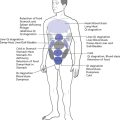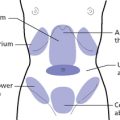 SEXUAL SYMPTOMS
SEXUAL SYMPTOMS
HOW WE ASK
An enquiry about sexual activity in men is important not only for diagnostic reasons but also to be able to advise them about appropriate levels of sexual activities according to Chinese medicine.1 There are significant differences between the sexual physiology of men and of women that are not often taken into account when advising patients about the desirable frequency of sexual activity: the Chinese caution about ‘excessive sexual activity’ is more relevant to men than to women. In fact, the Tian Gui, a direct manifestation of Essence (Jing), is sperm in men and menstrual blood in women: quite simply, because men lose sperm but women do not obviously lose menstrual blood during intercourse, sexual activity may potentially be weakening for men (when it is too frequent) but not so much for women.
MEN
The sexual symptoms discussed are:
(The symptoms and signs related to men’s sexual system are in Chapter 75 of Part 5.)
Lack of libido
Symptoms and Signs, Chapter 75
Box 45.2 summarizes patterns underlying lack of libido in men.
Premature ejaculation
Symptoms and Signs, Chapter 75
Box 45.3 summarizes patterns underlying premature ejaculation.
WOMEN
The sexual symptoms discussed are as follows:
Lack of libido
Symptoms and Signs, Chapter 89
Of course, a woman’s inability to reach an orgasm depends also on the man’s performance during the sexual act. According to Daoist sexual alchemy, men pertain to Fire and Fire flares up easily and is easily extinguished; women pertain to Water and Water is ‘slow to boil and slow to cool down’. It is for this reason that the ancient Daoist sex manuals were aimed primarily at men so that they would be skilled in the art of sexual foreplay. Therefore, when considering a woman’s inability to reach an orgasm we should keep in mind the possibility that this is due to her partner’s lack of skill rather than her own deficiency pattern.
Box 45.4 summarizes patterns underlying lack of libido in women.



